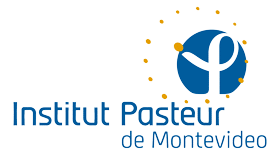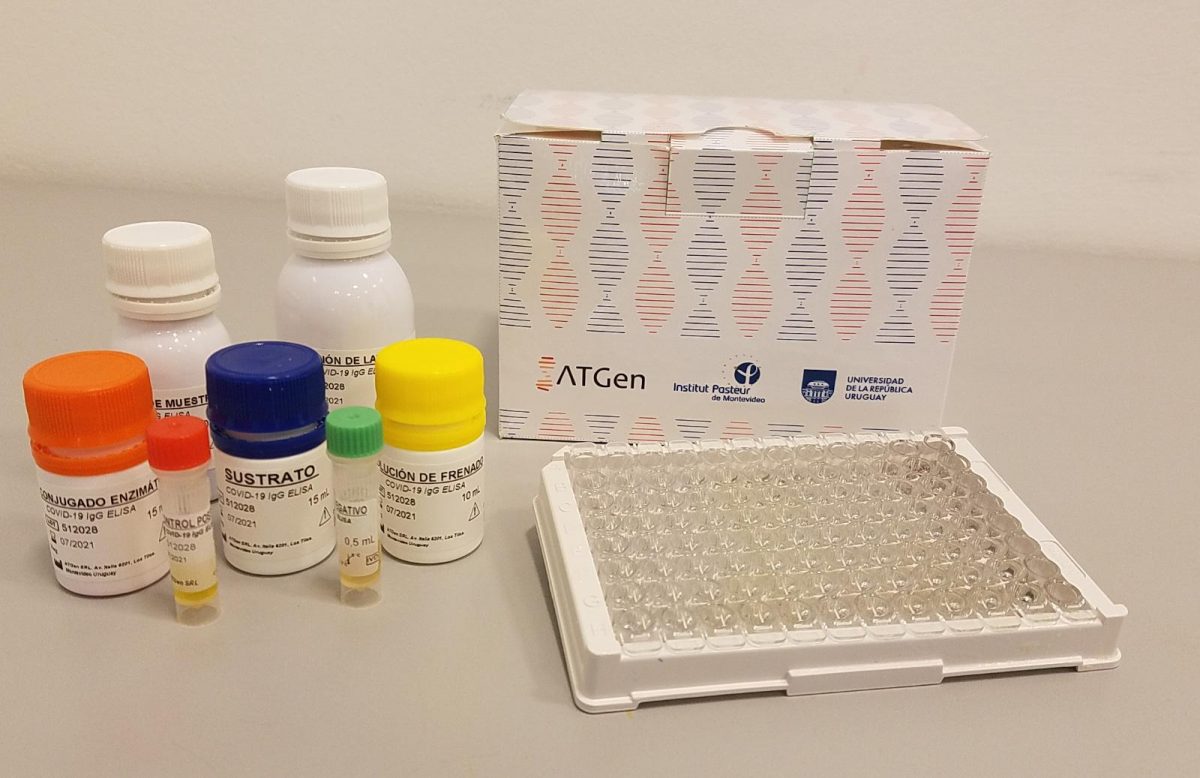A group of 46 years researchers from the Institut Pasteur de Montevideo, the Faculties of Chemistry, Sciences and Medicine of the University of the Republic (Udelar), and experts from the company ATGen developed and validated a national serological test that was presented on Tuesday 28 July (2020). The tests will be produced as a kit ready to use. Once the production begins, the Ministry of Public Health will coordinate and manage the distribution of the test. The project was possible thanks to the financial support of the National Innovation Agency (ANII), the International Development Bank (IDB) and the Mercosur Convergence Fund (FOCEM).
The presentation, held at the Auditorium of the University of the Republic, was attended by the Minister of Public Health, Daniel Salinas; the rector of the Udelar, Rodrigo Arim; the president of ANII, Flavio Caiafa; the project coordinators Otto Pritsch (representing IP Montevideo and the Faculty of Medicine) and Gualberto González (Faculty of Chemistry), and Andrés Abin, director of ATGen.
The tests are the result of a three-months work of an Inter-institutional Working Group created in late March that articulated a set of human, technical, equipment and infrastructure capacities distributed in different institutions that allowed creating a tool that can have different applications.
Unlike PCR molecular tests —which detects the presence of the virus in a sample of tissue extracted with swab from the nose or throat of the patient—, these tests uses a blood sample to detect the presence of the specific antibodies produced by the body to combat the new coronavirus SARS-CoV2. These antibodies are one of the mechanisms that the immune system uses to protect us from infections.
For this reason, these tests are useful in determining which people have already been in contact with the pathogen and developed a specific immune response. In this sense, these tests complement the molecular diagnosis by helping to identify individuals who went through the disease without symptoms, or who for some reason were not diagnosed using an RT-PCR test.
Also, serology is key to determining the extent of the epidemic in a particular population or group, for example in health workers, educational institutions, etc.
The test will also help in understanding the development of outbreaks and allowing asymptomatic contact tracing. In the case of developing passive therapies in critically ill patients with COVID-19, this technique will allow plasma donors to be selected based on the amount of antibodies. These tests could also be useful to monitor the antibody response in vaccinated individuals, once the vaccine is available.
To support this work, in April, the ANII and the IDB launch an 8 million pesos open call for the production of 50,000 serological tests. Also, FOCEM contributed with a regional fund that will allow the production of 200,000 kits for Uruguay, in addition to another 100,000 for Argentina and 80,000 for Paraguay.


